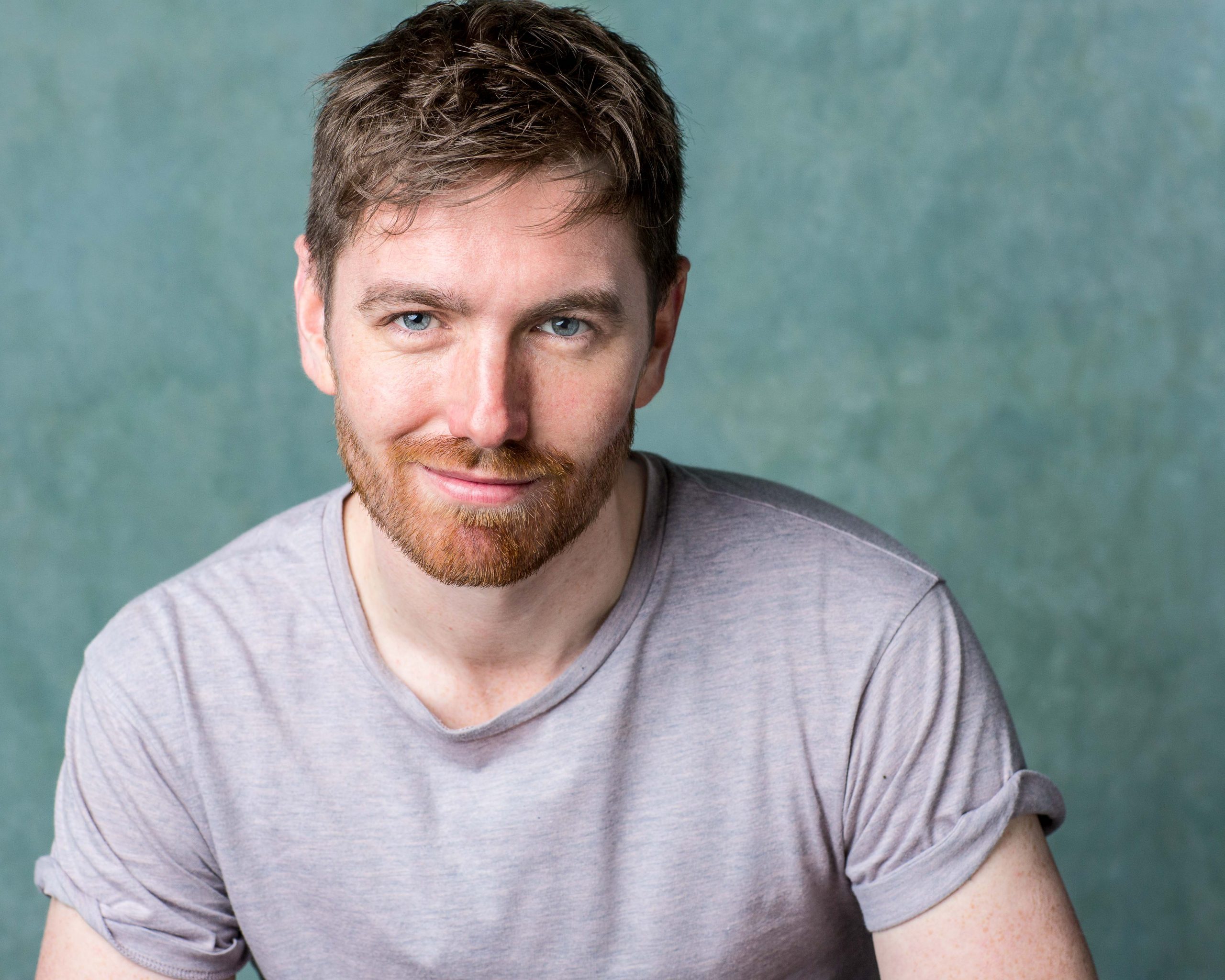DMU Pride: Interview with Rob Ward

DMU Pride returns to Curve for third year from 24 Feb – 4 Mar, offering an exciting programme of theatre performances, workshops and free events curated by De Montfort University students to celebrate LGBT History Month.
As part of the festival, Curve has commissioned a new play by Rob Ward, who has previously been part of DMU Pride with his production of Gypsy Queen, a love story between two boxers. This time, Rob returns to the festival with his new play The MP, Aunty Mandy and Me – a provocative story of coercion, politics, power and manipulation.
Here he explains more about his inspiration behind the play, and playing multiple roles in this bittersweet and darkly comic solo show about political campaigns, coercive abuse and steam trains.
What inspired you to write The MP, Aunty Mandy and Me?
Over the last few years I’ve been touring around the country with some of my previous shows that were looking at the LGBTQ+ community. One of the things that I quickly became aware of is that mainstream gay male culture is very city-centered, cosmopolitan and image-driven; the good-looking gays flock to the city and that’s where gay life is.
After going around the country to smaller towns and rural areas and meeting gay people who lived there, I felt like I wanted to give a voice to these people and that’s where this idea of a gay man living in a small, semi-rural town came from. I wanted to talk about what I’d noticed over the past few years in these areas – particularly in the north of England where I’m from – in the rise of social conservatism as a reaction to the liberalism emerging in the city centres, and how that interacts with gay culture.
Can you tell us more about the story?
I wanted to look at the politics of gay male culture – what I call the ‘Instagay’ phenomenon – the idea that the A* gay is the one who can take photos and put them on Instagram and get thousands and thousands of likes. That gives you real currency and kudos in the gay community, and there’s a sense of that throughout.
I also wanted to explore the idea of a guy that’s quite disconnected with the gay community because he’s from a small rural town. The main character, Dom, doesn’t really know gay people but he reads magazines and he goes online, and he constructs his identity through that.
There’s then this idea of coercive abuse after Dom encounters his local MP, who is gay. A relationship develops between the two of them that’s based on power dynamics and shared experience. Dom sees the MP as someone who can show him the way, but what then starts to happen is that he’s asked to give certain things up that he’s not entirely sure he wants to, though at that stage it’s too late.
It’s also a love story. Dom meets someone along the way and I was very interested to see how that developed under the gaze of the abuser’s manipulation.
I wanted to tell the story with humour. For me, one of the most important things in telling stories is relatability and an audience can relate to comedy. People might be reading this and going ‘hang on, it’s a story about coercive sexual abuse but it’s funny? What?’ I’ve always been a big believer that humour is a great way to connect to an audience.
How have you found writing and developing the characters?
I’ve always been a big fan of multi-role in theatre. I think it’s fun, theatrical and a bit different. You’ve got license to play around on stage, and I’ve always wanted to keep that in my work. A lot of this play is about concealing identities and having different identities, and the medium of multi-role theatre goes hand in hand with the themes of The MP, Aunty Mandy and Me.
How do you prepare yourself to change from one character to another?
You have to isolate yourself in rehearsals and go: ‘Okay, today let’s look at the character of The MP – How would he walk? How would he talk? How would he present himself to people? What’s he about? Let’s get that down. Now, how can we slip into that? Let’s figure out what the levers are that we can operate to slide from one character to the next’. Once you start to see Dom, for example, as not doing an impression who he thinks the MP is but instead as Dom now becoming the MP, you can ask ‘who is that MP?’
How do you feel to be part of DMU Pride?
I love it! We’ve brought Gypsy Queen – my previous play – to Curve for the last two years, and that was through DMU Pride. I think the whole set-up between Curve and DMU is fantastic and I wish more theatres and universities would work hand in hand across the country.
The MP, Aunty Mandy and Me plays at Curve for two nights only Tue 3 and Wed 4 Mar (7.45pm), and tickets are £10, with 15% off for Curve Members. To book, visit bit.ly/DMUPride, call the Box Office on 0116 242 3595, or visit us in person at Curve.
*Age recommendation 15+. Contains strong language and sexual references.